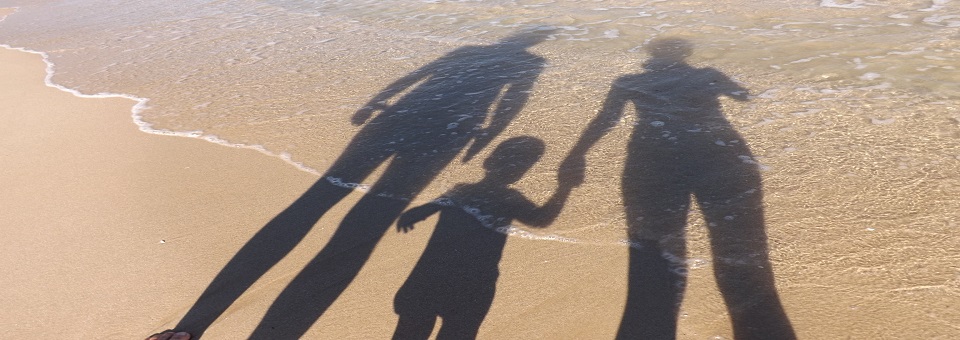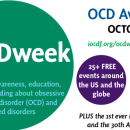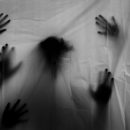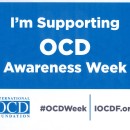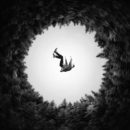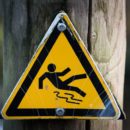Popular Posts
Want to become a patient?
Upcoming Events
Most Recent Articles
Imaginal Exposure vs. In Vivo Exposure for OCD
As I’ve talked about in numerous posts, overcoming OCD involves learning to co-exist with doubt and uncertainty. This idea can be a bit counter-intuitive at first, as many people initially expect OCD treatment to reduce uncertainty. One therapeutic approach that helps with this process is exposure and response prevention (ERP) for OCD. Not surprisingly, ERP consists of two parts: 1) exposure, and 2) response prevention. An exposure is when you do something on purpose to provoke an anxiety spike. By definition, exposures are not accidental; rather, they are pre-planned, deliberate offensive strikes against your OCD. Exposures are designed to help you build up your tolerance to fear-producing situations. Exposures are often completed according to an exposure hierarchy, meaning that people typically complete lower level exposures (i.e., less distressing exposures) before gradually working up to higher level ones. Response prevention refers to the idea that after the exposure, you will allow your anxiety to naturally decrease on its own without artificially forcing it to decrease prematurely through rituals. Response prevention is most effective when one resists ALL rituals, including both behavioral and mental rituals. Behavioral rituals may include things like washing, checking, or rearranging; whereas mental rituals may include self-reassurance, thinking “safe thoughts”, praying, or mental review. Avoidance is also considered a ritual. Exposures come...
Read MoreCommon Misconceptions About Anxiety & OCD Treatment
People new to OCD treatment often walk through the door with more than a few misconceptions. Here are some common ones: Misconception 1: Anxiety is bad. Actually, anxiety is a normal, functional, biologically-based phenomenon that every person is capable of experiencing. The only people who are truly anxiety-free are dead people. The rest of us (the living ones, at least) will find that anxiety will be a part of our lives, at least to some extent. Some anxiety is good and can be helpful. For example, it’s probably good to have some anxiety when you’re studying for a test. This anxiety can help motivate you to prepare sufficiently. Similarly, it’s probably good to have some anxiety about doing dangerous things, such as driving too fast — this anxiety might just save your life. Of course, not all anxiety is good or functional. Some anxiety spikes occur for no good reason and don’t have an upside. These false alarms make us feel bad for no good reason. Panic disorder is the perfect example of this. In panic disorder, your fight-or-flight system gets continually reactivated in situations where it isn’t warranted. Treatment of panic disorder involves learning to disregard the danger messages attached to your panic symptoms. The goal of OCD treatment (or the treatment of...
Read MoreOCD Awareness Week 2016
It’s #OCDWEEK! Help raise awareness and understanding about obsessive compulsive disorder (OCD) and related disorders. Welcome to #OCDWEEK 2016, a week organized by IOCDF to help raise awareness about OCD and related conditions! If you visit IOCDF’s website, you’ll find information about local and online programs and events designed to help increase the general public’s understanding of OCD. When I started this blog a few years ago, the internet was awash in misinformation about the nature of OCD. OCD was (more often than not) described in oversimplified terms, and the popular media largely mischaracterized OCD as a disorder defined primarily on the basis of excessive washing or checking behaviors. If you didn’t fit this mold, it was implied that you didn’t have OCD. I was hoping that, through my writing, I might be able to address some of these misconceptions and bring awareness to some aspects of OCD and anxiety treatment that were often overlooked or poorly understood. For each person with contamination OCD or checking OCD, there was another person with Pure-O OCD wondering, “What’s wrong with me? Am I the only one who has these thoughts?” On the surface, these various manifestations of the disorder can seem quite different, but truly, there are unifying concepts and processes that unite these disparate forms...
Read MoreGroup Therapy for OCD: Power in Numbers
Group Therapy for OCD Wow. Our first OCD treatment group met yesterday, and IMHO, it was an incredible experience. Thank you to all who attended and showed such courage in standing up to their OCD. I was reminded anew how group therapy for OCD is so different than individual therapy. OCD wants to separate us from others, to shame us, to make us feel hopeless, defective, and guilty… It wants us to define ourselves on the basis of things we can’t control and forget that we are not our thoughts. After all, that’s how it maintains its power over us. Although there is great vulnerability in putting your thoughts out there and saying them aloud in front of others, by doing so, we defy our OCD. OCD lost a few battles yesterday. Let’s keep this war going. For those who missed our group, I hope you can join us next Saturday (8/17) at 1pm for our next session of group therapy for OCD. Upcoming OCD Treatment Group...
Read MoreTeen Social Anxiety Group (Cognitive Behavioral Therapy/Group Therapy)
Teens with social anxiety unite! In this paid treatment group, teens will support each other in developing cognitive behavioral skills to combat social anxiety. This workshop will be interactive and fun. Note: If you are an adult with social anxiety, there’s a group for you coming soon! If you’re interested, please call our office or reply to this email so that we can better gauge demand for an adult social anxiety group. With the new school year quickly approaching, there is no better time to work on tackling your social anxiety. The intent of this group is to provide a supportive environment for developing cognitive behavioral skills and completing exposures. Because social anxiety can co-occur with other types of anxiety, you do not need a social anxiety diagnosis to benefit from this group. In some cases, this group may also be helpful for individuals with obsessive compulsive disorder (OCD), body dysmorphic disorder (BDD), panic, agoraphobia, and others who may be self-conscious or concerned what others may think of them. This group will meet on Saturday (8/17/13), 11am-1pm. The fee for attending this group is $100. Insurance will not be accepted; however, if you have out-of-network benefits, you may be eligible to submit your bill for reimbursement by your insurance company. Subsequent 2-hour sessions may...
Read MoreOCD Treatment Group Using ERP
OCD Treatment Group! I am pleased to announce the availability of our new exposure and response prevention (ERP)-based treatment group. The intent of this group is to provide a supportive environment for completing ERPs. Participants wishing to attend are required to register using the links at the bottom of this post. This group will first meet on Saturday (8/10/13), 1pm-3pm. The fees for attending this group are $75/session or $50/session if you pay in advance and commit to a 4-week group treatment sequence. Insurance will not be accepted; however, if you have out-of-network benefits, you may be eligible to submit your bill for reimbursement by your insurance company. Subsequent 2-hour sessions will be held on 8/17, 8/24, and 8/31 @ 1pm. You are free to participate in any or all of these sessions; however, individuals are most likely to benefit from repeated exposure sessions. Because treatment is ERP-based, participants should be familiar with ERP for OCD and must be willing to complete exposures targeting their fear. As such, it might be most helpful to use this group to supplement your current self-directed or therapist-guided ERP program. You can read more about ERP here or in one of the many good self-help books about OCD. Due to the potentially sensitive issues that will be addressed...
Read MoreWhat is OCD?
OCD is a malevolent advisor that wants to deceive us about the fundamental nature of the world. It wants us to believe that the world shouldn’t have any sharp edges and that our experience should be as smooth and snag-free as possible. If snags are apparent, it tells us that we should exchange our current experience for one that is more perfect. Although nice in theory, embracing such a philosophy creates an impossible situation. After all, there is no snag-free world to inhabit. Even the best world is fundamentally flawed. The more we become preoccupied by the pursuit of perfection, the more hyperaware we become of life’s flaws. As Dr. Jon Grayson writes, as soon as we begin comparing anything real to the ideal, the real becomes intolerably cheapened in the comparison. Reality, no matter how good, can never live up to the fantasy. OCD is one of the most variable and least variable of all the DSM diagnoses. It’s incredible in its symptomatic diversity; no two individuals experience OCD in exactly the same way. At the same time, OCD is remarkably consistent across domains when considered from the vantage point of wishes. All symptoms involve wishing for something that is impossible: wishing for perfect certainty, wishing for perfect safety, wishing for that perfect feeling… When...
Read MoreScary Thoughts as Costumes: The Illusion of Danger
It’s nearly Halloween, and kids around the country are digging through dusty closets and plundering the aisles of local Halloween shops in search of the perfect costume. Halloween is the one night of the year when we give ourselves permission to be silly, scary, or fantastical. We can act a little weird, and nobody will disapprove. On Halloween, it’s normal to see the ghastly holding hands with the divine; fairy princesses walk amongst zombies, lions, and super heroes. There is something thrilling about handing over the reins to your imagination…even if it’s only for a single night. But what would happen if the masks got stuck? What if every goblin remained a goblin and every ghost remained a ghost? The children underneath the make-up would still be our children, but their appearance would remain altered. How would we feel then? At first, it would be scary to inhabit a world populated by monsters. We would be angry. We would be confused. However, eventually we would learn to distrust our senses in the knowledge that beneath every scary facade is simply a child. Despite appearances, there is no danger here. We might wish that things could go back to the way they used to be, but eventually we would accept this new world as our...
Read MoreOCD Awareness Week
The International OCD Foundation (IOCDF) is sponsoring OCD Awareness Week, which means that organizations around the world are hosting special OCD-related events this week. South Floridians, we invite you to join us for our monthly support group meeting tonight (10/9/12) at 6:30pm in our Palm Beach Gardens, Florida office. You might also want to check out some of the amazing OCD Awareness Week events that are hosted online. Please note that the list below is just a sampling of all the incredible events that are going on this week. Feel free to cross-post to Facebook, Twitter, or your personal blog to help spread the word. Happy OCD Awareness Week 2012! List of OCD Awareness Week Events http://www.ocfoundation.org/awarenessweek 2012 Dare to Believe Contest Winners – Listen, read, and watch incredible projects created by talented individuals to promote OCD awareness. http://ocfoundation.org/anighttobelieve/ OCD Film Festival and Discussion hosted by OCD Texas http://ocdfilmfest.blogspot.com/p/welcome-to-ocd-film-festival.html Series of Daily Twitter Chats (10/8/12-10/12/12) @ 1pm EST featuring OCD Experts (#OCDchat) http://www.ocfoundation.org/twitterchats/ Monday – Dr. Jeff Szymanski will be answering general OCD questions. Tuesday – Dr. Nestadt and Dr. Fuesner will be answering OCD medication and treatment questions. Wednesday – Dr. Abramowitz will be answering questions about OCD and its effects on relationships. Thursday – Dr. Penzel will be answering questions from teens about OCD. Friday...
Read MoreVomit Phobia – Fear of Vomiting (Emetophobia)
Flu season will be quickly upon us and with it comes an unfortunate increase in the likelihood of experiencing fevers, coughs, runny noses, vomiting, and the like. Although no one enjoys being sick, this time of year poses particular challenges for individuals suffering from “vomit phobia”, or emetophobia, the fear of throwing up. The fear of vomiting can affect individuals of all ages. It sometimes emerges in childhood and, if untreated, may follow a relatively chronic course. However, it can also develop well into adulthood, sometimes taking root after a negative health experience (e.g., after getting food poisoning or after experiencing an episode of severe or uncontrolled vomiting). Vomit Phobia in Children and Teens Consequences associated with the fear of throwing up can be extreme. In children, vomit phobia can lead to school refusal and avoidance. Academic performance may suffer, and children may miss out on certain developmentally important social milestones. If a child or teenager is afraid of getting nauseous or throwing up, he or she may avoid birthday parties, sleepovers, dating, and eating out at restaurants. Missing out on these activities can affect relationships and impact social development, which may lead to chronic social impairments. Even when longstanding social problems do not develop, children with vomit phobia still experience a great deal...
Read MorePostpartum OCD – Fear of Harming Your Baby
Parents brace themselves for many changes when a new baby comes home. As new routines replace old, life quickly becomes a confusing jumble of cherished memories, bottles, and dirty diapers. Parenting can be joyful, but it can also be terrifying. Parenting comes with many important responsibilities, and it can be intimidating–if not downright frightening–to be responsible for protecting and caring for a vulnerable new life. What is Postpartum OCD (ppOCD)? For some parents (mothers and fathers alike), new parenthood may spark postpartum obsessive-compulsive disorder (OCD), a surprisingly common anxiety disorder that is associated with violent and disturbing thoughts, images, or urges (Fairbrother & Abramowitz, 2007). Symptoms may begin suddenly after the new baby arrives home, or pre-existing OCD symptoms may be exacerbated by new parental responsibilities. Postpartum OCD symptoms can involve virtually any type of OCD symptom, but harm obsessions and sexual obsessions are especially common. Harm obsessions may include fears of accidental harm or intentional harm coming to the infant. Postpartum OCD – Unwanted Violent Thoughts Consider the mother of a colicky young infant who, frustrated by her baby’s crying, has a mental image of herself throwing her baby down the stairs. This thought occurs unexpectedly and feels dangerous, and the woman becomes extremely upset by this thought. This mother might think: “Why am...
Read MoreIOCDF Conference, IOP for OCD Program, & Group Therapy for Panic…
Just a few quick announcements: 1) The 2012 meeting of the International Obsessive-Compulsive Foundation (IOCDF) is just a week away. The IOCDF conference marks the perfect convergence of all things OCD-related. In attendance are some of the best clinicians and researchers in the field. Many of these individuals will be presenting talks related to OCD diagnosis and treatment. Hundreds of individuals with OCD will also be at the conference, some of whom will be leading workshops and sharing stories of recovery. This year’s roster of presentations looks to be exceptional. If you haven’t registered yet, there’s still time. This year’s meeting will be held in the Windy City: Chicago, Illinois. I’ll be attending–hope to see you there! Also…I may try to be more active on Twitter during the conference. Feel free to follow me here. 2) I have revamped the description of my Intensive Outpatient Program (IOP) for OCD and have posted an updated summary page on my practice website. This program is not for everyone…but is appropriate for: Local OR out-of-town patients (with any level of OCD symptoms) who wish to complete treatment in the shortest amount of time possible. Individuals who have stubborn symptoms of OCD that have not responded well to traditional outpatient therapy. Individuals with severe symptoms who are seeking...
Read MoreSuicide Obsessions: Fear of Killing/Harming Yourself
Thoughts of death, dying, and suicide are an unfortunate reality for many individuals. In the U.S. alone between 2008 and 2009, approximately 3.7% of adults (8.3 million Americans) reported having suicidal thoughts (Crosby et al., 2011). During that same time frame, approximately 2.2 million U.S. adults reported making specific plans to commit suicide. An estimated 1 million Americans attempted suicide, and 36,035 individuals died as the result of suicide. Clearly, suicidal thoughts and actions impact a significant number of Americans. Although suicidal thoughts are most often associated with depression, suicidal thoughts are not experienced exclusively by those who are clinically depressed. Suicidal thoughts may also accompany other mental health conditions and may even occur in healthy individuals in the general population. Not all thoughts related to suicide pose the same level of risk. Suicidal thoughts can range in intensity. Some thoughts may be fleeting, whereas others may involve detailed planning of the suicidal act. In addition to variations in the level of danger associated with different types of suicidal thoughts, some individuals may be at a greater/lower risk for acting on their thoughts. Suicide obsessions are a specific category of suicidal thoughts that are unique to individuals with OCD. If you’ve read my previous posts on harm obsessions, you might conceptualize suicide obsessions as...
Read MoreFear of Hurting Other People
The fear of harming others can be a sign of obsessive-compulsive disorder (OCD), a neurobiological condition that is associated with repetitive, intrusive, distressing thoughts that can’t easily be dismissed. Fear of Harming Other People On Purpose Some aggressive obsessions involve the fear of harming others intentionally. In my last post about the fear of hurting other people on purpose, I identified several specific examples of harm obsessions. These included the fear of losing control and murdering your child, the fear of stabbing a loved one, and a variety of other fears involving violent, murderous, or criminal acts. In some of these examples, anger was a trigger for OCD obsessions. Fear of Harming Other People By Accident Other harm obsessions involve the fear of causing accidental harm, usually through negligence or carelessness. Individuals with these fears often feel that if they notice a situation that might be dangerous or harmful, they are morally obligated to act “responsibly” in order to avert potential danger. Many years ago, I treated a student who would carefully remove all sticks, rocks, and other assorted debris from the sidewalks and hallways leading to and from his classes. He felt that if he noticed a rock that could potentially cause someone to trip and fall and did not move it out...
Read MoreAggressive Obsessions: Fear of Harming or Killing Others
Aggressive obsessions go by many names. Harm obsessions, violent obsessions, morbid obsessions…the list goes on… These symptoms of obsessive-compulsive disorder (OCD) involve the fear of harming or killing other people. In other cases, aggressive obsessions are directed at the self, such as when individuals experience unwanted, intrusive, and recurrent thoughts about hurting or killing themselves (suicide obsessions). This post will focus on aggressive obsessions that involve the fear of harming or killing other people. Aggressive obsessions involving suicide and self-harm will be addressed in a subsequent post. Fear of Harming or Killing Others Aggressive obsessions often focus on violent, murderous (stabbing, shooting, choking, poisoning), or criminal (arson, bank robberies) acts and involve graphic mental images of blood, injury, and death. Individuals with violent obsessions may fear becoming serial killers or deliberately hurting someone they love. Aggressive obsessions affect individuals of all ages, including adults, adolescents, and children. Common examples include: Fear of going on a murderous rampage, involving stabbing or cutting. Fear of grabbing a nearby policeman’s gun and shooting someone. Fear of choking your baby or partner to death. Fear of snapping your child or pet’s neck. Fear of pushing or throwing someone off a building or other high place. Fear of intentionally poisoning someone (e.g., putting rat poison into your loved one’s...
Read MoreHarm Obsessions & Violent Obsessions
Imagine that you’re leaning down to kiss your young daughter goodnight, when BAM! You are jolted by an image of yourself stabbing her to death. Alternatively, picture yourself as a young child who is intensely afraid of playing with your new puppy…not because you’re afraid of dogs but because you are afraid that if you touch it, you might lose control and snap its neck. In either scenario, the most horrifying part is that you’re afraid that you might secretly want to act on these unwanted thoughts. After all, why would the thought keep coming if it didn’t mean something? Violent Obsessions, Harm Obsessions, & Bad Thoughts This is the daily reality for many adults, teens, and children who experience harm obsessions, also known as violent obsessions, a type of OCD symptom that involves unwanted, repetitive violent thoughts, impulses, or images. Harm obsessions are typically shocking, distressing, and disturbing, and they may occur thousands of times every day. They often involve themes of violence, death, murder, self-harm, and suicide. Obsessions involving death are also sometimes referred to as “morbid obsessions.” Much like sexual obsessions, violent obsessions can be a debilitating symptom of OCD because they can “pop in” at any time and in any place. They are sometimes associated with the presence of triggers...
Read More






